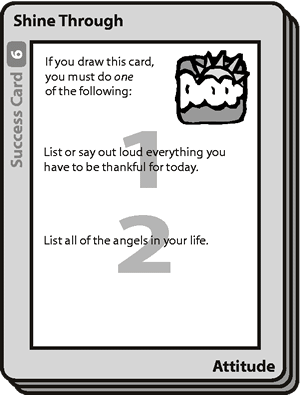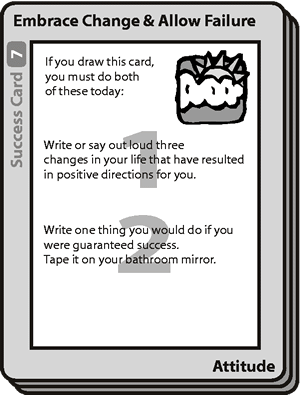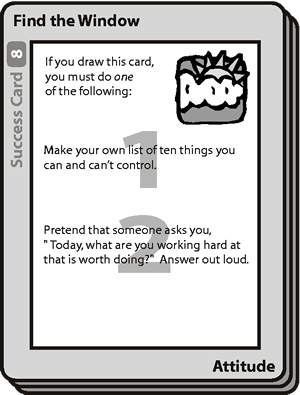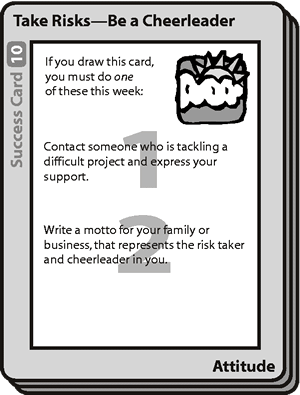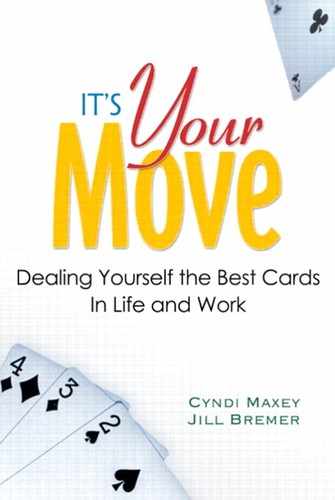Frances was a single woman in her early forties, a large woman with a giggle that children loved. Although she lived at home with her parents, she maintained a large, active network of former business school friends and their families, whom she visited often. When their children would ask her why she wasn't married, Frances would laugh and say that the right man hadn't come along. Visits from Frances were greatly anticipated. She always brought small toys, her own hand-crafted items and, best of all, pastry samples from the Lucky Boy Bakery where she worked as a secretary. On summer visits, she found time to make sand pancakes with the kids in the sandbox, infecting everyone with her humor and positive attitude about life. During Frances' visits, busy mothers relaxed, sat down, conversed, and laughed more too. To her friends, Frances was an angel of sorts—a giver of laughter and love.
Then one day, Frances announced that she had met someone, a bachelor sheep farmer named Richard, whom she immediately dubbed “Dickie Lee” because in her world, everyone had a nickname. A new chapter of Frances' life began, and, although the farm was small and poor, her attitude prevailed. She named each newborn lamb and cried over any that died. Her letters to friends were filled with lists of newborn lambs by name. During those years, Frances and Dick invited the friends' children to visit and help with the lambs; the children loved their visits because of the attention they received and the grown-up responsibilities of farm chores.
They were married only ten years when Dick died of cancer. Alone on the farm, Frances faced invading raccoons, weather tragedies, and a changing market for the sheep. Finally, after many years of adversity, she moved back to town and painted ceramics to earn extra income. Many of the grown-up children who visited her during that time observed that, even as an old woman, she still had a “shine”: the same great giggle and the attitude that infected them years ago. What was it? Frances' shine was a sincere, unstoppable positive approach to life.
If you had met Frances, you would not have had to guess about her life philosophy. It was evident in simple, observable ways. There was just no doubt that she lived life with a positive spin. To play the attitude hand successfully—to communicate a positive, confident attitude clearly through your behavior so that it is immediately evident—is also your goal. Others will see it. You will gain momentum from it. Day in and day out, you will shine through, no matter how cloudy the weather.
Like Linda, you too, could have faced a day when nothing seems to go right. These days often start at home. You forget to set your alarm. You spill jelly on your shirt. Your child needs three permission slips signed immediately. You get all the red lights on the way to work. You arrive to find you're late for the early bird meeting. Later, on voice mail, your internist's nurse has called to say that the doctor would like to schedule more tests. Then your supervisor steps in to say, “Due to cutbacks, we'd like you to take on Donald's workload this week until we figure something else out.” Or worse, “I'm sorry, but due to cutbacks, we're not going to be able to keep you.”
How, you could be wondering, can I possibly have a positive attitude at the end of a day like that? Or maybe you're remembering a day that was much like it. Actually, it's not as difficult as it seems to adjust your attitude if you can get in the habit of taking specific mental, physical, and even verbal actions throughout the day. To shine through all your days, no matter how tough they are, try these simple steps:
Pause and take a deep breath while counting to ten. This brings oxygen to your brain so that you can think; counting helps control your emotions.
List either mentally or out loud all of the things you're thankful for in your life. Begin with the most immediate and keep going as long as you can.
Stand up and walk or stretch. Physical activity distracts you from mental trauma.
Do something positive for yourself. Call a friend, hug a child, write a quick note, look at a cherished photo—anything immediately easy to do.
Begin again. This step is perhaps the most important for successful attitude adjustment. You've got to consciously begin again, or feelings of self-pity will reemerge. It's like trying to hold a beach ball under water; you have to keep applying pressure or it bounces back.
This five-step process helps you put your situation into perspective with what's really important to you in life. Putting things in perspective gives you a more realistic sense of comparison. It helps you adjust your attitude.
Frances, Linda, and Sarah each adjusted their attitude so that their behavior reflected their most important values. Deceptively simple everyday activities—attending to others' children, making one more phone call, or pausing in a doorway—allowed them to shine through life's difficulties. You, too, can adjust your thoughts and behaviors to make your life more positive every day.
Change is like the weather. No climate on earth is totally predictable. When you were little and a rainy day ruined your play, your mother said to you, “Cheer up. You can't do anything about the weather.” You'd go outside and splash in puddles or play inside with your blocks. Now that you're bigger, are you still able to cheer up when change ruins how you want to play? Do you adapt as quickly? Change is often unpredictable, so your best choice is to embrace it as your mother taught you. Turn a cloudy, rainy day into opportunity.
Transitions at work and in life cause some people to spin out of control, but other people such as Clay don't let that happen. In fact, one trait of a successful executive is to manage change and transitions well. You don't have to be an executive, though, to do what Clay did: to observe what's going on around you, make mental notes, and come up with a personal plan to get you through. Listen to and learn from your observations. Do you feel you are working harder but accomplishing less? Are you getting more irritable, angry, and short tempered with people around you? Do you feel more cynical about your life or work? On the other hand, are you energized and positively challenged by the unpredictability of each day? Does a change in the status quo add interest to your life? Are you ready to take on new activities?
If you're out of work and want to be employed, you're probably an active soul searcher; change is a part of your day now. You're considering things that you may not have considered before. If you're a Baby Boomer, you may be feeling a bit like a “has-been.” Maybe it's just time for your “second calling,” and, if so, you can follow the lead of many who've found happiness in second careers later in life. John Mahoney, a Steppenwolf theater, television (Frazier), and movie actor, began acting in his thirties. Grandma Moses started painting in her eighties. Student teachers can be any age.
Dr. Norman Vincent Peale, in his classic book, The Power of Positive Thinking,[1] interviewed many everyday people who overcame adversity. Each person had a story to tell about a lesson learned on how being positive and having strong beliefs changed his or her life. Over the years, many of their lessons have developed into well-known adages, for example, “If you expect the best, you will get the best.”2 Before the word self-talk was widely used as an internal technique to help people build confidence, Dr. Peale was building his case against defeatism. He encouraged people to see that unexpected change is not insurmountable; he helped them take control of their lives and embrace change with specific actions. Well worth reading, Dr. Peale's book has sold seven million copies and is still available in paper, hardcover, audio CD, and cassette.
Juana faced extreme change: a full-time position in an environment with a different language. Even though she doubted her ability, she was doing many things right. She committed to a job with an early morning schedule in spite of her young family; she arrived early for training and kept a smile on her face, although inwardly she was losing confidence. Calling her mother was a good idea; it reinforced her family's support, but Juana can keep working to maintain her self-esteem without checking in at home. After all, she was an A student in computer science in high school. She should give herself credit for being able to learn the new system, keeping in mind that the experienced workers have just used it longer.
Most stress in your life is caused internally—by your own perceptions of and reactions to life's events. Only a handful of major life crises—death, injury, illness—are external stressors. In other words, your judgment of a situation is what creates most of your stress. Managing your response to life's challenges takes discipline and often lots of self-talk so that you can keep them in perspective.
Though you may feel overwhelmed by the amount of change in your life, you can take action to accept it. Rather than hold on to the past, you can let go and move on, like Clay, Juana, and Jean did. Each found ways to live positively while facing major change.
When people are asked what they've learned most in life, they'll frequently say things such as, “I wish I'd committed to my passion sooner” or “I shouldn't have listened to the people who said, I couldn't do it.” If you are employed, you know that in your job, you are constantly being evaluated. If you aren't employed, others judge you on a daily basis in different ways: What are you doing with your life? Do they agree with what you're doing? How do you measure up? People will always judge other people; it's in their human nature to do so. It helps them make sense of the world. It's a given: You will fail to measure up to someone else's expectations at some point. That's all right. If you want to be better at failing, you simply have to adjust your attitude.
Perhaps you've heard the adage, “He who never makes a mistake probably isn't doing anything.” Top salespeople don't close every prospect; top athletes don't win every game. Certainly top speakers aren't always ranked number one. People who are able to allow failure in their lives without being paralyzed by it are busy people. They have so many places to go and so many things to try!
One of the most difficult things parents do is watch their children fail at something, but lessons learned from failure are some of the most meaningful ones. The same is true for adults. Failures should be seen as gifts. Great things can come from failure—character development, self-confidence, and innovation. Mistakes are often big wins in disguise.
If you've ever been in a position similar to William's, you know what it's like to try to avoid anger and panic in the face of failure. You don't want to be like other people you know who whine, blame others, and refuse to own up to the problem, but it's difficult to admit a mistake. During these times, it's important to remember that, in spite of a poor decision or an error, you're still a good person who overall does well. You're a good employee, a good spouse, and a good parent. Whatever your overall goodness role is—give yourself credit.
You've probably heard that every cloud has a silver lining or that when one door closes, another opens. Everyone experiences pain, loss, and adversity. It's difficult to see the silver lining and the open door during these times. When your life is cloud covered, it's important to find the window that lets in the sunshine. There is always a window.
A morning television talk show once ran a human-interest story of a small beagle trapped in a culvert pipe with a porcupine that he had unknowingly chased too far into the pipe. After hours of rescue attempts, the beagle emerged, covered with quills. More than sixty caring human rescuers immediately surrounded him. They will never forget the sight of the poor dog, covered with the souvenir prickly quills across his snout, tail, and entire small body. The pain of the dog's situation illustrated that even when you feel trapped while trying to pursue a goal, there is always hope at the end of the tunnel.
Of course, you need to develop the attitude and action plan to get you through. Others can't do it all for you. Life today seems to be filled with tunnels and traps at every turn. If you've weathered six job cuts in seven months at your organization, you're probably tired of holding your breath. If you've been looking for new work for over a year, you'd probably like a group of sixty kind humans waiting at the end of your tunnel. First, you have to examine your own attitude. People who are successful at finding the window share these characteristics:
A personal sense of commitment in life.
A feeling of control over their life.
An ability to let go when the time is right.
A strong support system of family and friends.
A belief in a higher power or strong value that guides them.
Knowing this, rate your own commitment to what you're doing. Theodore Roosevelt once said, “No man needs sympathy because he has to work. Far and away, the best prize that life offers is the chance to work hard at work worth doing.” Have you won the prize? What do you enjoy doing? What gives you personal satisfaction? What brings balance to your life? How much time do you spend doing what makes you laugh and feel happy and good about yourself? When do you feel in control? With what parts of your support system are you happy? Who can you count on to be there for you? Do you really have a positive attitude? Do you laugh easily and often? How easily do you accept what happens to you and then deal with it?
As you examine your attitude and your sense of commitment, here's a short list to help adjust your attitude:
Things you can't control
Traffic
The number of hours in a day
Your failing eyesight
Your age
A client's whims
A team member's lack of follow-through
The number of vacation days the company gives
Spilled milk after you've cleaned the kitchen
Death and taxes
Things you can control
How you treat others
When you leave for work
How you spend your evening
How you talk about yourself
How often you exercise
When to share your feelings
How you let your family know you're stressed
How old you act
How often you praise your children
Did you find yourself smiling as you read the can't control list? It's a little absurd to realize that we think we can control all those things. The can control list is full of ways to turn attitude into actionable behavior. That's the key to attitude adjustment. Take action. If you're in work transition, get involved with your organizations. Exercise more so you don't end up overindulging in food and drink. If you feel stuck at home with children and all you see is doors—slamming as the children run from room to room—get out and treat yourself to some “me” time. Call others who could be feeling the same way. Host a lunch for nearby parents with children who are home during the day. Start a block club to get to know others in the area. Flip the negatives into positives. Richard Carlson, author of the best-selling Don't Sweat the Small Stuff, stops a block away from his home before arriving at the end of the day to give thanks in his car for having a family and home to come home to. There might not be sixty caring people waiting for you at the end of the tunnel, but you're rarely really trapped. The window is always there somewhere.
You could find your window differently than the people you live and work with find theirs. You will most likely repeat strategies that work, learning along the way. Each day of your life, depending on your background, personality, and environment, you will discover what works best to get you through the day successfully. As you gain confidence, you will also discover how to help others find their window.
When your attitude is at its lowest is often the best time to say yes to things you've said no to before. Give yourself new challenges. Do something to distract you from your current state. You could even want to call someone back who had asked you to participate in something that you previously declined. You can change your mind without a lengthy explanation. You can say, Joe, y'know, I've reconsidered, and I would like to help you with the girls' basketball team. Do you still need an assistant coach? You can approach your boss again, Diane, last week you asked me to consider learning the new database program; is it too late to get in the class?
Here are some other activities you might want to consider saying, yes to:
Agree to be on the board of your association.
Try team leadership.
Take on extra responsibilities in a new area at work.
Babysit a neighbor's children or pets.
Go on the company's outward-bound adventure.
Sign up for the management class your training department offers.
Sign up for a class in a new area of interest: art, writing, photography, and so on.
Treat yourself to a new kind of cuisine.
Partner with someone on a time-share basis.
Barter your services for another's (legal help for painting a room, for example).
Swami Satchidananda, a spiritual teacher, was once asked to explain the difference between illness and wellness. To answer, he silently walked to a chalkboard and wrote the word illness and circled the i; then he wrote the word wellness and circled the we. There is a “we” in wellness. Feelings of caring, love, and connection keep us well. To avoid too much self-focus, give more. Here are some ways you could give:
Take your kids to the zoo.
Sign up to be a docent.
Write a column for your school newsletter.
Host a networking group in your home.
Spend more time with an elderly parent.
Volunteer for the company picnic committee.
Donate an hour of your professional services to a worthy cause.
Volunteer to teach an after-school children's class.
A “halo effect” comes with volunteerism. Being in the right place at the right time produces unexpected positive results in other aspects of your life. More than half of all adults in the United States volunteer three to four hours a week. Of those who don't, 68 percent say they would if asked. Why wait for someone to ask you? Seek causes and groups of which you'd like to be a part. Call the chair of a committee or the organizer of an event to get started. Watch your attitude adjust accordingly.
A Chinese proverb states, “Man who says it cannot be done should not interrupt man doing it.” With the fast pace of life today, the proverb holds true now more than ever. How many times have you had an idea only to find that someone else took it to market faster? Think of all the Amazing successful ideas that naysayers said would never happen. How about shopping on the Internet? Do you remember the early pioneers in the industry, perhaps even saying to someone you knew, “Amazon.com? What's that?” Now it's nearly a household name around the world. Jeff Bezos, the CEO of Amazon.com, is a risk-taker and innovator. He believes that one of his most important roles as a leader is to make sure that his people know that things that seem impossible only seem impossible. They're often very doable.
Don't get stuck in a state of toleration. The status quo can be just as demoralizing as some types of change. When you're tolerating something, your energy is in a negative place. You feel drained. You start attacking yourself, and your self-esteem suffers. Why not put all of that negative energy in a much better place? Turn it positive and take a risk!
Taking risks is part of managing yourself. Nobody else will take the risk for you; it's up to you. Management professor and author Peter Drucker once said that he no longer teaches the management of people at work because he no longer thinks that learning how to manage other people is most important. Now he teaches, above all, how to manage oneself. Self-management is the skill for successful game players today. If you're employed, try to remember that, above all, you're in charge of you. Work for yourself, not your employer. If you're at home, work for your own goals, not everyone else's. Do you have too many rules and not enough freedoms? Creative life and work decisions require the removal of pressure, fear, and judgment. Assess your attitude toward your work and life frequently. Don't be afraid to carefully examine these questions:
What parts of your work or life do you love?
What parts are least enjoyable?
What changes in your physical environment do you need?
What would make work or life more fun?
Do you feel happy nearly every day?
Earlier, when you played the Preparation Hand, you looked at your joy sensor. Your attitude is reflected in the outcome of your assessment. If you'd like to increase the happiness and positive moments in your life, here are some ideas to help you every day:
Focus on one task at a time. A busy entrepreneur calms herself by hand washing the dishes in warm soapy water. She focuses on the dish, the soap, and the feel of the water.
Set limits when you need to. Saying no doesn't mean you have a bad attitude; it means you care enough to say yes at a better time.
Allow extra time for tasks and appointments. When you know your child's orthodontist appointment includes an hour wait, make room for a full hour and a half in your calendar. Take a good book or balance your checkbook while you wait.
Get help with jobs you dislike. Cleaning help, database entry, phone calling, or dog walking—all can be contracted or bartered.
Set realistic expectations for yourself. Don't try to do everything on your to-do list every day. Be happy when you check off some key items.
Express your feelings. A group of overworked computer programmers surprised their managers when they asked for a day off to be with their families instead of their typical monthly bonuses.
Schedule more fun and breaks in your day. Read the “funny papers” in the morning. Get to know one of the cartoon families, and it will help you laugh at your own situation with your work, teenager, or romantic life.
Frances, the lamb farmer with the shining attitude, always signed her letters “Francie,” beside a scribbled self-portrait. If you looked closely at the scribbled portrait, you would notice that she gave herself a halo every time. Perhaps that's one reason her friends and their families believed that she was an angel. She believed it herself.
Frances's cheerleading began within. Yours should, too. If you can't support yourself, you can't support others. Dr. Carl Hammerschlag, an expert psychologist and author on wellness, says that you can't pour from the cup to share if your own cup is empty. Who can you cheerlead for if not yourself?
Harry responded beautifully to a negative environment. He took action. If people who whine and complain have ever surrounded you, you know how hard it is to try to be different. Try cheering others on, too. Recognizing others' accomplishments and good deeds can do wonders for your own sense of peace and well-being. Sometimes, shifting the focus from yourself and to others can be a springboard for a fresh outlook on your own life.
Actually, what is perfect? Have you ever heard the perfect speech? Have you managed the perfect project? Have you raised perfect children? Is your marriage perfect? Is your job perfect? Why do we perpetuate the myth that we have to be perfect to be successful? If you're employed, you can easily get caught up in the stress of your workplace to make perfect decisions. If you're at home, you can get caught up in the stress of whether you're managing your home according to standards others have that aren't really yours. You get caught up in unreal life rules such as these:
I must never fail.
I must always look smart.
I must work very hard at all times.
I must never get angry.
I must always look thin and attractive.
I must always play it safe.
Perhaps you learned these rules as a child, directly or indirectly. Incorporating them into your value system only sets you up for stress. You can't possibly live up to these rules; instead you run away from people and problems; you become aggressive; you remain passive. If family or friends who seem to demand perfection surround you, talk to them about how those standards affect you. Let them know if you feel more stressed than challenged by their standards. They won't know how they're affecting you unless you tell them. In fact, authority figures such as managers or parents often share how difficult it is to find the right way to create a motivating climate for those they care about. Not knowing what else to do, they often end up modeling behaviors that their own managers or parents used with them. Traditions die hard.
Real-life rules are more like this:
You can't have everything.
Things won't always go your way.
Life is unfair.
Some people will never understand you.
You can't please everyone.
Strive to follow the real-life rules and forget the unreal ones. You'll be much happier more of the time.
Like Anthony, you could find yourself trying to be a guru. You too could try to figure out the perfect answers without asking enough questions. If you're in a new situation, start asking questions right from the very beginning. Don't assume that you're the only one who doesn't know. Chances are, the right questions haven't been asked in a long time. Many times, people don't ask questions because they think it makes them look less skilled or knowledgeable. Consider this: Highly esteemed lawyers have been paid to ask good questions for centuries.
Find out as much as you can about the people with whom you interact. Know what they typically expect. Who is a stickler for details? Who thinks in big pictures? As you get to know others, you'll be less concerned about being perfect and more concerned about adapting to their specific needs in different ways. The focus will be where it should be: on them, not on you. As you build relationships, mention your past experiences and prior knowledge, such as, Kate, I'm looking forward to hearing about your work with ABC Office Products; I used to know someone there. Or Joe, I heard about your new venture award. Congratulations. Small gestures or compliments usually can't hurt if they're short and sincere. You're establishing yourself as a real person—a person with a life, a past, flaws, and lessons learned along the way.
If you're in a situation with a demanding boss or manager, remember that perfection is rarely a manager's ultimate goal. Overall, your manager knows you're not perfect. Your manager just wants you to make his or her job easier and meet production goals. Managers don't want to be embarrassed, and they want to be able to give employees feedback easily. Instead of thinking about perfection, think about how you can take initiative. What can you add to your to-do list that will make you more valuable? Seeking feedback is one of the strongest messages that you can send that you are confident in what you do. You can say something like, I know you want to meet your objectives, so here are some issues I am wrestling, or I need your help with this project if we're going to meet the deadline that I know is important to you. If you confront difficulties with your boss, it's difficult to let a negative attitude fester.
Honest feedback and understanding also hold true for parents at home with children. Each child is different; you can't be the perfect parent in one broad stroke. Perfectionism and child rearing just don't blend well. In fact, children can teach you a thing or two about the freedom that lies in creative failure and mistakes. As the adult, you're the one who can most easily say you're sorry or that you made a mistake. A key in eliminating perfectionism is owning up to your errors and working together to move forward.
You've now played the Attitude Hand. To reinforce all of those positive thoughts you've been having during this chapter, draw one of the following cards for your first move. Remember that how you choose isn't as important as choosing now. Write your choice in your game plan at the end of the book. When you've completed the move, return to the game plan to fill in the results.
